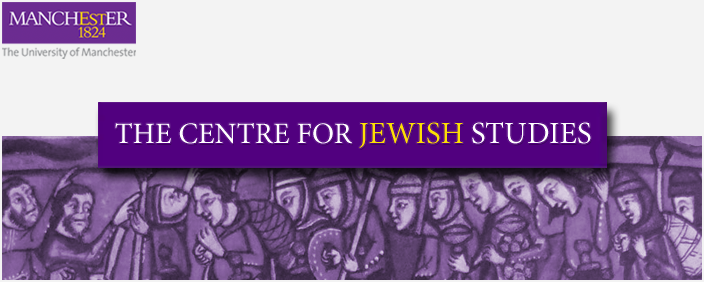Weizmann at Manchester University
 Upon his arrival, Weizmann approached Prof. William Perkins of what was then Owen’s College with a letter of introduction from a mutual acquaintance, Prof. Graebe. He was provided with a laboratory to conduct his research at the University at a rent of £6. The daughter of a colleague of his recalls,
Upon his arrival, Weizmann approached Prof. William Perkins of what was then Owen’s College with a letter of introduction from a mutual acquaintance, Prof. Graebe. He was provided with a laboratory to conduct his research at the University at a rent of £6. The daughter of a colleague of his recalls,
"Prof. Dixon [Director of the University Laboratories] had asked father [Alfred F Edwards] if he could find a room in the Dept. where a young scientist from Russia could work and continue his research. This was not easy - but father found a dirty cob-webbed room in the basement. He had it cleaned and equipped as a Chemistry lab, and to this Chaim Weizmann came in 1904 at the age of 30. I am sure that he was of considerable service to the young man, helping to equip the lab and guiding Weizmann as to whom he could turn for materials and information."
Within a few months, he was appointed an Honorary Research Fellow and placed in charge of a lab with four research assistants. He got involved with the University social life from early on, despite his unfamiliarity with English and any insecurities he might have felt as a foreigner. At a meeting of the Chemical Society (October 1904), the topic was the relative merits of the different university systems. The Manchester University Magazine (1904-5) records,
"The discussion was rendered very interesting by an excellent description of the most modern system by Dr Weizmann, who, however, spoke in German. Nevertheless, all who understood him thoroughly appreciated his vigorous defence of the German University system."
 As his English improved, he became a part-time Demonstrator in the Organic Lab. His superior, Prof. Perkins, invited him to give weekly lectures on topics that interested him especially, after which he taught a course in organic chemistry, and later weekly class tutorials for final-year undergraduates. In 1907 he was promoted to Senior Lecturer in Chemistry, when his appointment became permanent. Further promotions included Assistant Director of the Organic Labs (1911), and Reader in Bio-Chemistry (1913). When, due to internal politics in the Chemistry Department, it became obvious that he would not gain a professorship, he decided to accept the offer of a job with the Zionist Organisation in Berlin. According to Israel Sieff, his wife Vera, put her foot down, arguing, "You have already said that the road to Palestine is through London. Our road to Palestine will never go through Berlin." Weizmann did not speak to Vera for 3 weeks, but he stayed.
As his English improved, he became a part-time Demonstrator in the Organic Lab. His superior, Prof. Perkins, invited him to give weekly lectures on topics that interested him especially, after which he taught a course in organic chemistry, and later weekly class tutorials for final-year undergraduates. In 1907 he was promoted to Senior Lecturer in Chemistry, when his appointment became permanent. Further promotions included Assistant Director of the Organic Labs (1911), and Reader in Bio-Chemistry (1913). When, due to internal politics in the Chemistry Department, it became obvious that he would not gain a professorship, he decided to accept the offer of a job with the Zionist Organisation in Berlin. According to Israel Sieff, his wife Vera, put her foot down, arguing, "You have already said that the road to Palestine is through London. Our road to Palestine will never go through Berlin." Weizmann did not speak to Vera for 3 weeks, but he stayed.
Weizmann established the Manchester University Students’ Zionist Association around 1908 (he was elected president in 1909), and a University Zionist Society was formed in 1912.
In 1915, in the Bio-Chemistry labs, Weizmann discovered a method of fermenting starch into butyl alcohol and acetone - it was the acetone which was required for the manufacture of cordite, an explosive. After Weizmann and his researchers had improved the process, it was tested and offered to the Admiralty, where large-scale production was proved possible. The Ministry of Munitions then asked for Weizmann to be transferred to London as their consulting chemist. Weizmann was allowed to take five research students with him, and fitted up appropriate labs at the Lister Institute, London.
Although he never returned to the University, Weizmann kept in contact with several members of staff for years after. These included the scientists Arthur Schuster and Ernst Rutherford, and the philosophers Niels Bohr and Samuel Alexander, all of whom were supporters of his Hebrew University project.
At Manchester University, Chaim Weizmann’s obtained MSc (1906), DSc (1907), LLD honoris causa (1919). Vera Weizmann attained MB,ChB (1912).
__________________________
IMAGE AND DOCUMENT CREDITS: Weizmann in lab (Patricia Cummings), Victoria University (HM Blumberg, Weizmann; his Life and Times) Full reference: Sources.



